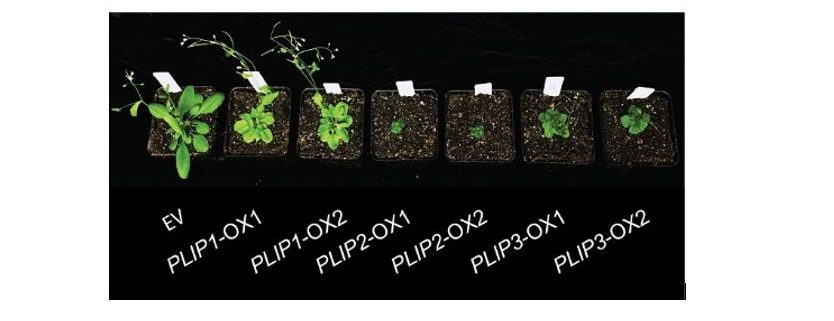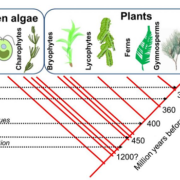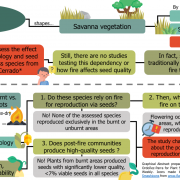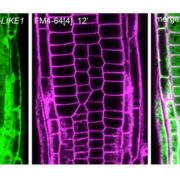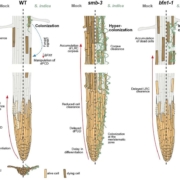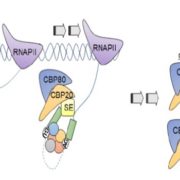When Lipids Meet Hormones: Plants’ Answer to Complex Stresses
Wang et al. show that abscisic acid-inducible genes encode lipid degrading enzymes that release polyunsaturated fatty acids from chloroplast lipids as precursors for jasmonic acid production leading to biotic defenses in Arabidopsis. Plant Cell doi.org/10.1105/tpc.18.00250
By Kun Wang and Igor Houwat
Background: Land plants are immobile, yet they constantly encounter changing environments rich in challenges to plant life. Hormonal regulation and membrane remodeling have evolved as two important strategies plants use to adjust to variable conditions. Abscisic acid (ABA) is the plant hormone that primarily facilitates plant adaptation to abiotic stresses (e.g., cold and drought), while jasmonic acid (JA) initiates defense responses to certain biotic stresses (e.g., insect attack). On the other hand, stress-induced membrane remodeling requires enzymes that fine-tune the lipid composition as needed.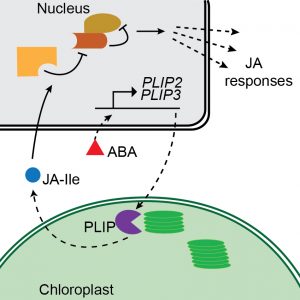
Question: We were curious about the mechanism behind stress-induced membrane lipid remodeling, in particular, which of the large number of lipid-degrading enzymes predicted to be in chloroplasts are involved.
Findings: We focused on two Arabidopsis genes, named PLASTID LIPASE2 (PLIP2) and PLIP3, that encode plastid localized lipid-degrading enzymes. These enzymes release fatty acids from the chloroplast membrane lipids to produce JA, which then turns on the molecular responses leading to biotic defense and reduction of plant vegetative growth. We found that the expression of PLIP2 and PLIP3 is induced by the ABA hormone and possibly by different abiotic stresses, such as cold or drought. Therefore, a mechanistic link between ABA signaling and JA biosynthesis through PLIP2 and PLIP3 is proposed.
Next steps: We are currently working to elucidate the individual functions of PLIP2 and 3 in response to different abiotic stresses. We are also trying to understand the precise roles that PLIP proteins play in coordinating plant responses to abiotic and biotic stresses. Eventually, we hope to use our knowledge about PLIPs to engineer crops to be more resistant to the natural onslaught of abiotic and biotic stresses.
Kun Wang, Qiang Guo, John E. Froehlich, Hope Lynn Hersh, Agnieszka Zienkiewicz, Gregg A. Howe, Christoph Benning. (2018). Two Abscisic Acid-Responsive Plastid Lipase Genes Involved in Jasmonic Acid Biosynthesis in Arabidopsis thaliana. Plant Cell May 2018, 30: 1006-1022; DOI: https://doi.org/10.1105/tpc.18.00250


